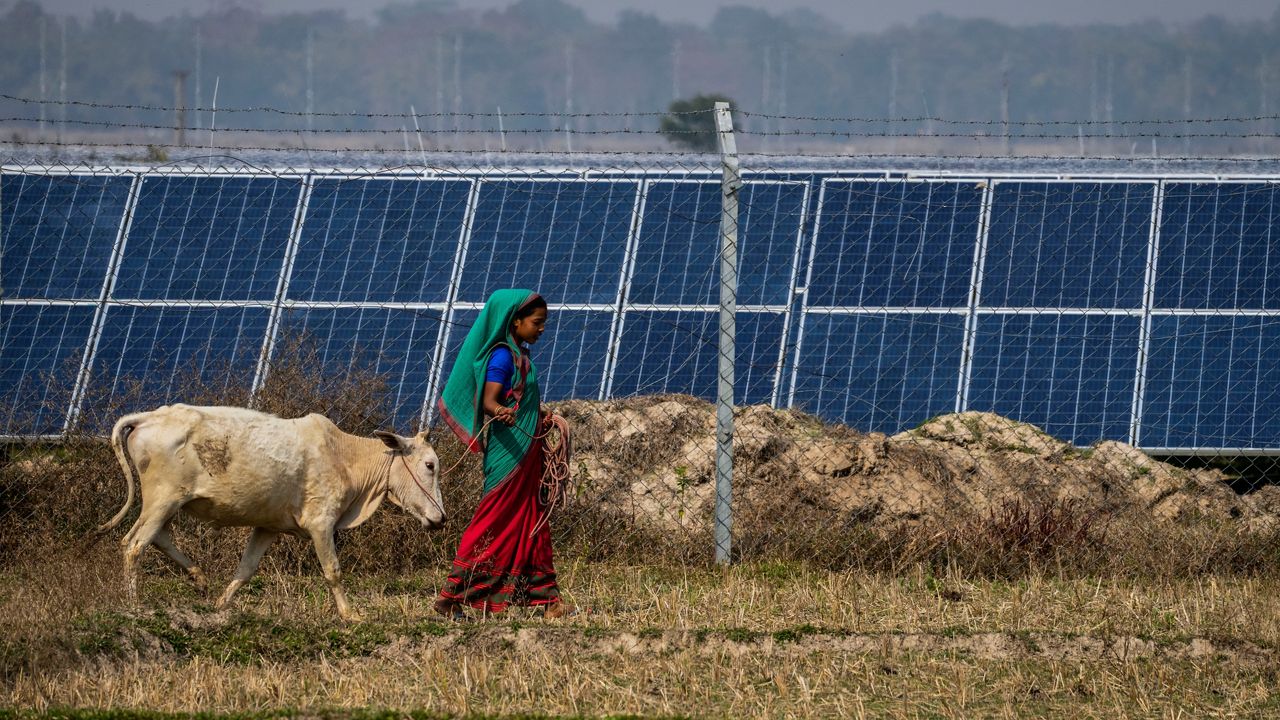The world has the tools needed to prevent the worst effects of climate change, but governments and corporations are standing in the way, according to a major report issued Monday by the United Nations' Intergovernmental Panel on Climate Change.
What You Need To Know
- The world has the tools needed to prevent the worst effects of climate change, but governments and corporations are standing in the way, according to a major report issued Monday by the United Nations' Intergovernmental Panel on Climate Change
- The report, approved by 195 member governments, also says that the cost of solar and wind energy is no longer an excuse because prices have decreased by as much as 85% since 2010
- There is evidence that climate-focused policies, infrastructure and technology enable changes in people’s lifestyles and behaviors that could result in a 40%-70% reduction in greenhouse gases by 2050, said IPCC Working Group III Co-Chair Priyadarshi Shukla
- U.N. Secretary-General António Guterres accused some government and business leaders of lying about their commitments to curb greenhouse gas emissions
The report, approved by 195 member governments, also says that the cost of solar and wind energy is no longer an excuse because prices have decreased by as much as 85% since 2010. United Nations Secretary-General António Guterres said Monday, “Now, in most cases, renewables are already far cheaper” than fossil fuels.
There is evidence that climate-focused policies, infrastructure and technology enable changes in people’s lifestyles and behaviors that could result in a 40%-70% reduction in greenhouse gases by 2050, said IPCC Working Group III Co-Chair Priyadarshi Shukla.
But such policies and tools must be scaled up dramatically.
Guterres said that the world is currently on pace to more than double the Paris Agreement’s goal of limiting global warming to 1.5 degrees Celsius (2.7 Fahrenheit) compared to pre-industrial levels. The 1.5-degree mark alone would lead to higher sea level that makes some coastal areas uninhabitable, tropical storms that are more frequent and intense, heat that is more extreme, more droughts that hurt food supplies, and more wildfires that threaten homes and businesses, environmentalists say.
“The jury has reached a verdict, and it is damning,” Guterres said in a video address. “This report of the Intergovernmental Panel on Climate Change is a litany of broken climate promises. It is a file of shame, cataloging the empty pledges that put us firmly on track towards an unliveable world. We are on a fast-track to climate disaster.”
Guterres accused some government and business leaders of lying about their commitments to curb greenhouse gas emissions.
“They are choking our planet based on their vested interests and historic investments in fossil fuels when cheaper renewable solutions provide green jobs, energy security and greater price stability,” he said.
“Investing in new fossil fuel infrastructure is moral and economic madness.”
The U.N. leader said the world must triple the speed of its shift to renewable energy. To limit global warming to 1.5 degrees, global emissions must be reduced by 43% by 2030 while methane would need to be reduced by a third, the report says.
Spending on climate-change mitigation, meanwhile, is currently three to six times lower than where it needs to be by 2030 to limit warming below 2 degrees, according to the report.
Guterres called on developing countries to help emerging nations. He also urged people to join grassroots movements “that cannot be ignored,” including through their stock market investments.
“Demand that renewable energy is introduced now at speed and at scale,” he said. “Demand an end to coal-fired power. Demand an end to all fossil fuel subsidies.”
The IPCC report is the third installment of the U.N. body’s sixth assessment report, which will be completed this year.
It also suggests steps such as designing more compact, walkable cities; electrifying transportation in combination with low-energy sources; reusing and recycling more products; and capturing carbon dioxide both naturally and with emerging technologies.
“It’s now or never, if we want to limit global warming to 1.5°C (2.7°F),” Jim Skea, the IPCC working group’s other co-chair, said in a news release. “Without immediate and deep emissions reductions across all sectors, it will be impossible.”
